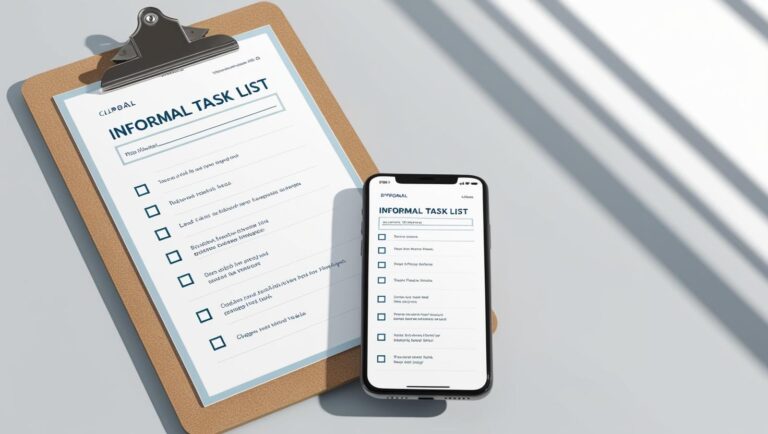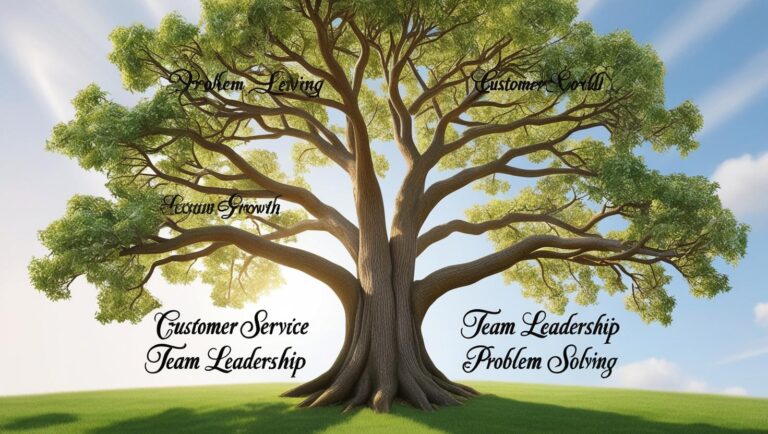From Informal to Intentional – Turning Everyday Work into Credible Training
In most small businesses, training doesn’t look like a classroom. It doesn’t always involve PowerPoints, scheduled workshops, or official certifications. Often, it looks much more organic: a new hire shadows a senior team member, watches someone solve a problem in real time, or learns by trial and error. Sometimes it’s a WhatsApp voice note explaining how to handle a tricky client, or a quick side-by-side walkthrough of a process that was previously unknown.
This type of learning — informal, on-the-job, hands-on — happens constantly. Yet, because it’s not documented or structured, it’s often undervalued. Small businesses lose opportunities to showcase employee growth, claim skills for their Workplace Skills Plan (WSP) or Annual Training Report (ATR), and preserve knowledge when someone leaves the team.
The truth is, informal learning is valuable. And with a few intentional steps, you can transform everyday knowledge transfer into credible, structured training that benefits your business, your people, and your compliance requirements.
Recognising What Counts as Training
Many small business owners assume that “training” only happens in classrooms or through formal online modules. But training is far broader than that. Any time someone learns something new that improves their performance, it qualifies as training.
This includes:
Mentoring or coaching sessions: A senior employee teaching a junior one how to approach client communication or troubleshoot a recurring issue.
Process walkthroughs: Step-by-step guidance through software, machinery, or workflow processes.
Task demos and hands-on practice: Letting someone try a task while being observed and corrected in real time.
Problem-solving debriefs: Reflecting on a challenge after it happens and sharing lessons learned.
Quick micro-learning: Short voice notes, messages, or even impromptu discussions that clarify a process or skill.
For example, imagine a small marketing agency where the founder explains how to draft a client proposal. Instead of a formal workshop, the founder sits with a new hire, showing how to structure the document, what tone resonates with clients, and common pitfalls to avoid. After this session, the new hire drafts their first proposal and receives feedback. That is training — informal, yes, but effective.
The key takeaway: if learning occurred and performance improved, it counts as training.
Structuring the Unstructured
The challenge for small businesses is that informal learning is scattered and often forgotten. To make it credible, you need a simple, repeatable way to capture it. You don’t need a full curriculum or LMS — a straightforward template can work wonders.
Here’s a practical approach:
Informal Training Template
Topic: What skill or knowledge was shared?
Trainer: Who explained or demonstrated it?
Method: Shadowing, demo, hands-on, verbal instruction?
Date/Time: When did it happen?
Outcome: What changed after the training?
Even logging this information in a simple spreadsheet validates dozens of hours of training over time. For instance, a small café could document when a senior barista trains a new team member on espresso preparation, from grind size to milk frothing. By the end of the month, that spreadsheet becomes a credible record of skill development.
Leveraging Peer-to-Peer Learning
In small businesses, peer-to-peer learning is often the most accessible and powerful method of skill transfer. Everyone is working closely, and the opportunities for informal coaching are everywhere. Turning this into intentional training multiplies its impact.
Consider these strategies:
Senior staff leading short sessions: Instead of waiting for formal training programs, let experienced employees run mini-workshops. These could be as short as 15–20 minutes, focusing on one practical skill.
New team members shadowing experienced ones: Shadowing provides context, builds confidence, and reinforces procedural learning.
Documenting “how I do this task” videos: Even quick recordings on a phone or screen capture for software tasks create lasting knowledge resources.
The key is intention. Give your peer-learning initiatives a name that suits your culture — Mentor Sessions, Team Tuesdays, or Peer Power Lunches. Naming makes it real and signals value to your team.
For example, in a small logistics company, senior drivers could run a short session on route planning and safety checks for newer drivers. By documenting these sessions and sharing them internally, knowledge becomes standardised rather than dependent on one person’s availability.
Creating a Culture of Learning Out Loud
Documentation alone isn’t enough. The most effective small businesses cultivate a culture where learning is visible, valued, and encouraged. Employees should feel comfortable asking questions, sharing solutions, and reflecting on what they’ve learned.
Encourage staff to:
Ask, “Why do we do it this way?” rather than just following instructions.
Share stories about how they solved problems, including mistakes and corrections.
Reflect on new skills gained and how they might apply them to future tasks.
By making learning a natural part of daily conversations, you capture informal training in real time. Culture eats compliance for breakfast — by normalising learning, your business captures growth without turning it into an administrative burden.
Documenting for Credibility
To claim your informal learning in a SETA submission or simply to track team development, documentation is critical. You don’t need perfect, polished records — you need proof that learning occurred.
Key components to document include:
A training log for each employee or team
Description of what was taught or demonstrated
Proof of attendance (even informal, like a signed sheet, screenshot of a chat, or brief meeting note)
Reflection or feedback when possible
For instance, if a small retail business teaches a new cashier how to manage stock levels and reconcile tills, a simple log noting the date, trainer, method, and the improved outcome is enough to validate the training. Over time, these logs create a track record that demonstrates both employee growth and organisational commitment to skill development.
Examples of Turning Everyday Work into Credible Training
1. Customer Service Excellence in a Boutique Shop
Every time a senior salesperson resolves a challenging client issue, they can take five minutes to explain the approach to a new hire. Documenting these moments as mini “coaching sessions” ensures that the knowledge is preserved and replicable.
2. Software Skills in a Small Accounting Firm
Instead of holding formal workshops, an accountant demonstrates spreadsheet shortcuts during actual client work. Recording the demonstration or logging it in a simple template ensures it becomes part of the firm’s skill repository.
3. Operational Procedures in a Café or Restaurant
When a barista improvises a solution for a broken coffee machine, this problem-solving moment becomes a teachable event. Documenting the steps, sharing them with the team, and reviewing them periodically transforms a one-off fix into a standard procedure.
4. Leadership Skills in a Growing Start-up
Founders and managers often mentor employees on decision-making. By capturing these mentorship sessions in logs or summaries, they not only reinforce learning but create a record of leadership development that can be referenced in performance reviews or WSPs.
Making It Practical and Sustainable
Small businesses don’t have the time or resources to manage complex Learning & Development programs. The goal is to make informal training intentional, visible, and sustainable.
Some tips:
Keep the process simple. Use a spreadsheet, shared document, or even a small notebook.
Schedule short, frequent knowledge-sharing sessions rather than long, infrequent workshops.
Celebrate and recognise contributions. Highlight employees who actively train peers — it encourages participation and reinforces the value of learning.
Review logs regularly. Quarterly reviews help identify skill gaps and learning patterns.
By keeping it simple, documenting consistently, and building a culture around it, informal training becomes a strategic asset rather than a missed opportunity.
Final Thoughts
Here’s the truth: your business is already training people every day. The problem isn’t the absence of training — it’s the lack of recognition and structure around it.
By moving from informal to intentional training, you achieve multiple benefits:
Your employees see their growth and feel valued
Your business captures knowledge before someone leaves
You can claim credible training in WSP/ATR submissions without heavy investment
Your team becomes smarter, more capable, and more confident
Training doesn’t need to be complicated, expensive, or formal to be effective. With intention, documentation, and a culture of “learning out loud,” you can turn everyday work into credible, measurable, and impactful learning experiences.
In short, your small business doesn’t need a big Learning & Development budget. It just needs awareness, structure, and a commitment to recognising and nurturing the knowledge that already exists.
The next time someone shadows a colleague, asks a question, or solves a problem in a new way, stop and ask: Can this be captured, shared, and leveraged? If the answer is yes, you’ve just created credible training that builds skills, confidence, and long-term success.



